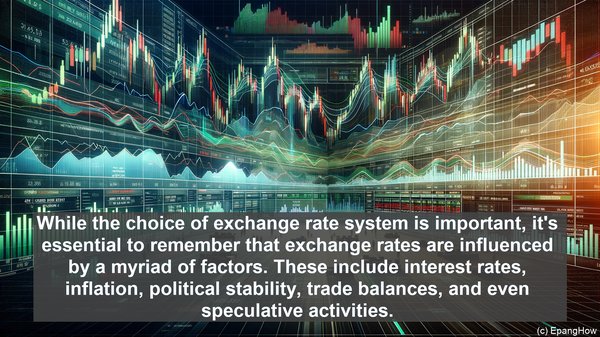Introduction: The Significance of Exchange Rates
Hello everyone, and welcome to today’s article! Exchange rates are the backbone of global trade and finance. They determine the value of one currency in relation to another, impacting imports, exports, investments, and even tourism. In essence, exchange rates are the pulse of the global economy.
The Managed Exchange Rate System: A Centralized Approach
Under a managed exchange rate system, central banks and monetary authorities actively intervene in the foreign exchange market. Their goal is to stabilize or manipulate the value of their currency. This can be done through various measures, such as buying or selling foreign currency reserves, setting interest rates, or imposing capital controls. The aim is to ensure stability, promote economic growth, and maintain competitiveness in international markets.

The Free Floating Exchange Rate System: Market Forces at Play
In contrast, a free floating exchange rate system is driven purely by market forces of supply and demand. Here, the value of a currency is determined by the foreign exchange market, without any intervention from central authorities. This system is often associated with economies that prioritize market efficiency, as it allows for quick adjustments to changing economic conditions. However, it also means that exchange rates can be highly volatile, influenced by factors like economic indicators, geopolitical events, and investor sentiment.
Implications of Each System: Stability vs Flexibility
The choice between a managed exchange rate and a free floating exchange rate has significant implications. A managed system can provide stability, which is crucial for countries with high import dependencies or those experiencing economic shocks. By controlling the exchange rate, they can ensure that the cost of imports remains manageable, preventing sudden price hikes. On the other hand, a free floating system offers flexibility. It allows for automatic adjustments, which can be beneficial for economies with strong export sectors. A depreciating currency, for instance, can make exports more competitive in global markets, boosting economic growth.
Factors Influencing Exchange Rates
While the choice of exchange rate system is important, it’s essential to remember that exchange rates are influenced by a myriad of factors. These include interest rates, inflation, political stability, trade balances, and even speculative activities. For instance, if a country’s interest rates are higher than its trading partners, it may attract foreign investors, leading to an appreciation of its currency. Similarly, geopolitical tensions or changes in commodity prices can also have significant effects on exchange rates.

